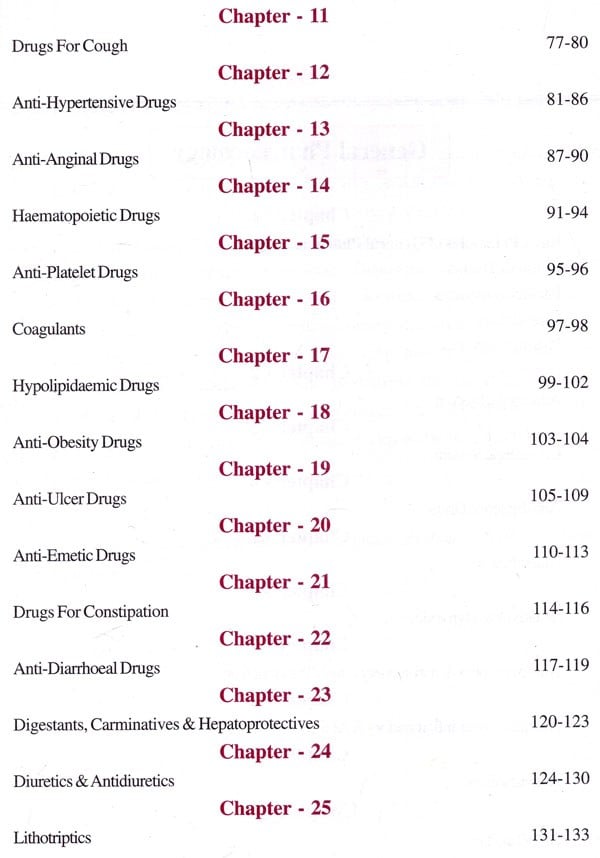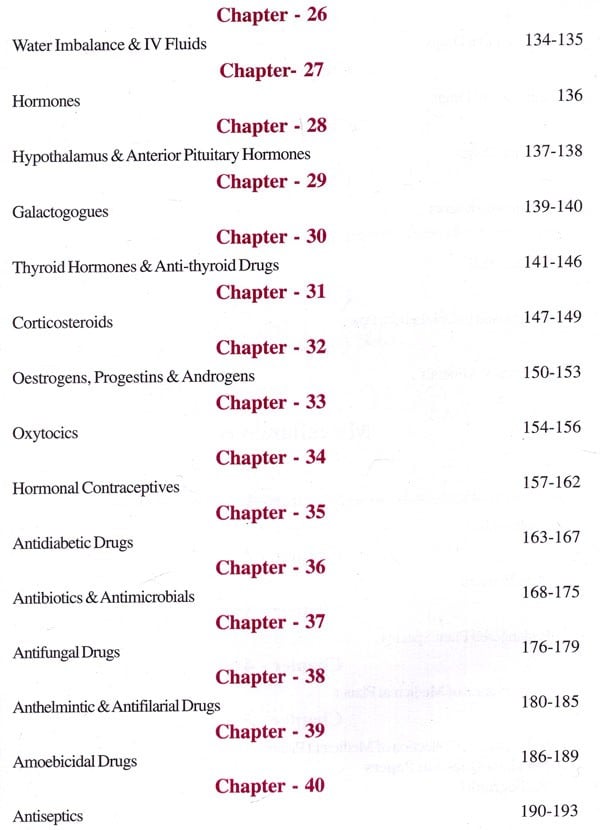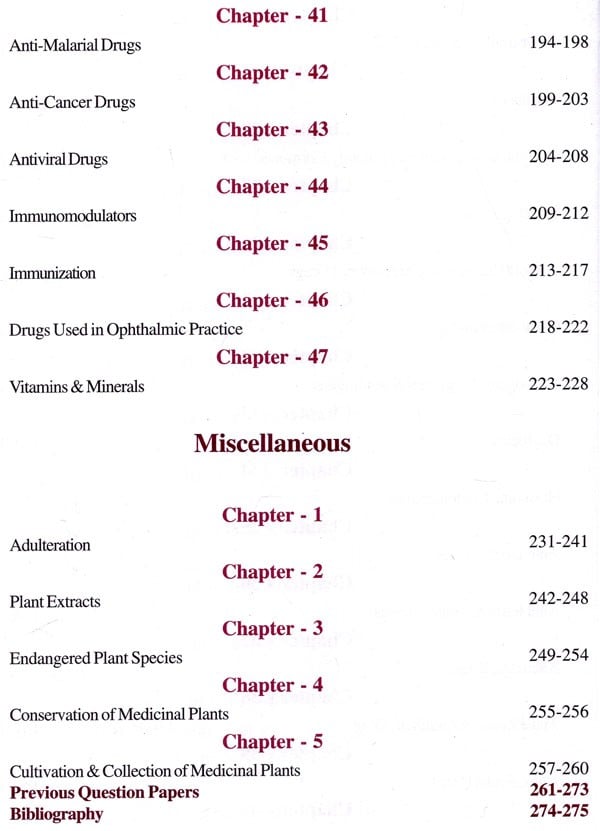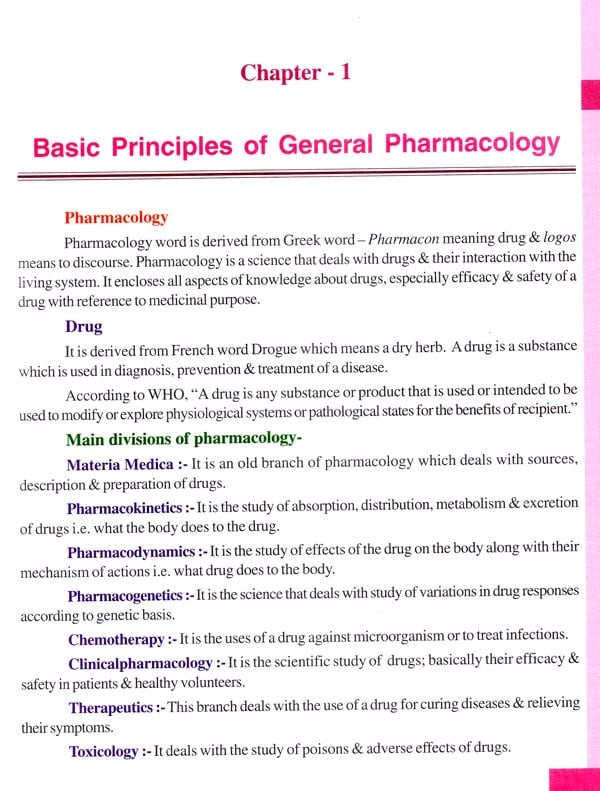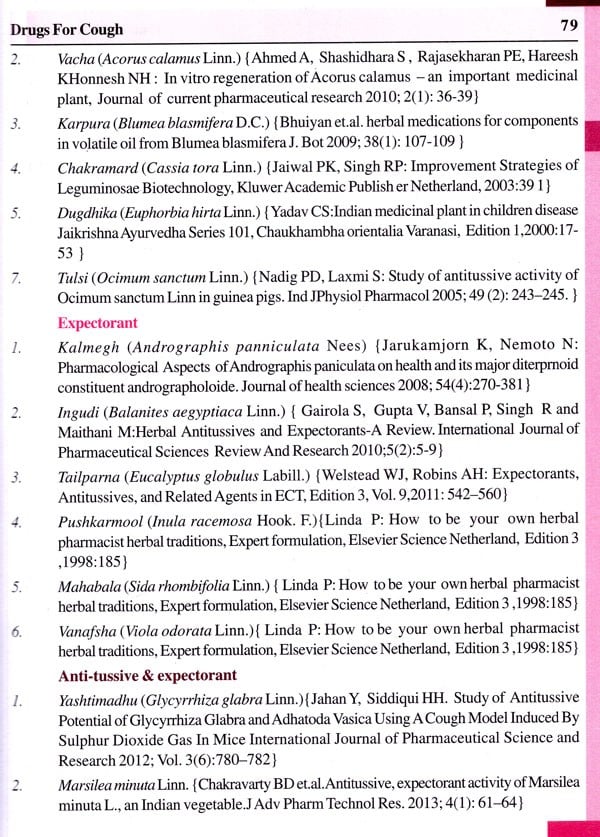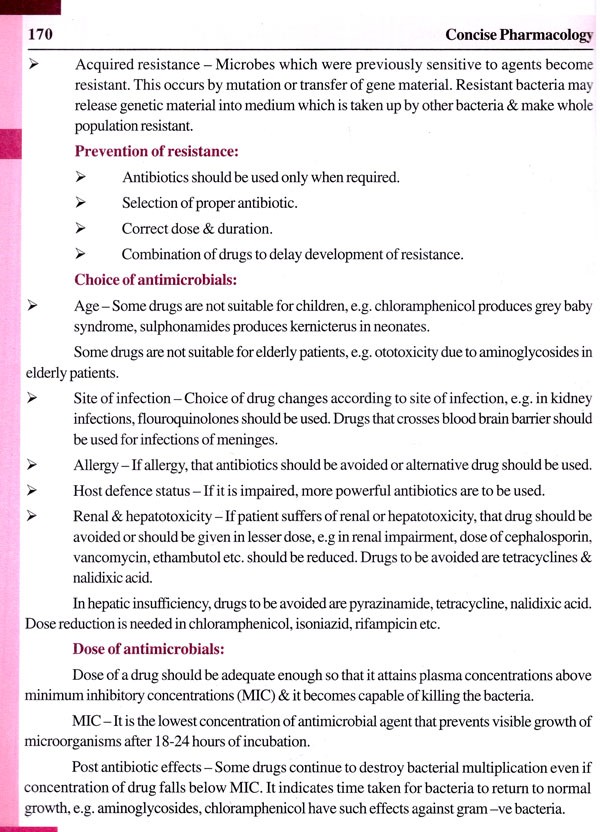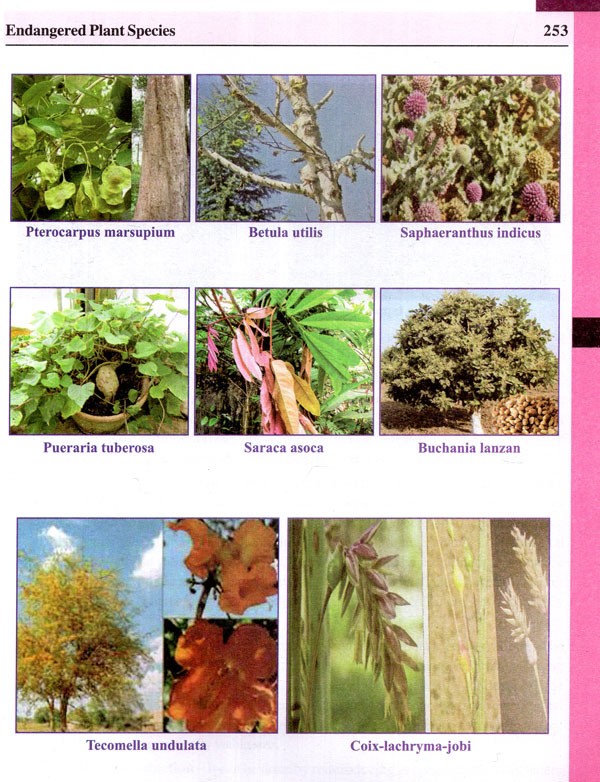
Concise Pharmacology For Ayurveda Students
Book Specification
| Item Code: | NBZ950 |
| Author: | Malvika |
| Publisher: | Ayurved Sanskrit Hindi Pustak Bhandar, Jaipur |
| Language: | Hindi and English |
| Edition: | 2020 |
| ISBN: | 9788194369417 |
| Pages: | 275 (30 Color Illustrations) |
| Cover: | PAPERBACK |
| Other Details | 9.50 X 7.50 inches |
| Weight | 480 gm |
Book Description
It also covers other modern topics related with herbs like adulteration, plant extracts, endangered species, cultivation & conservation of medicinal plants etc. These topics are included in second year syllabus of BAMS students. This book also offers pictures to make topics interesting.
This book is very much favourable for graduates & post graduate students.
She has published more than 15 articles in various international journals. She has presented eight papers in various National & International seminars & conferences. She also presented her thesis in WAC, Kolkata. She regularly attends workshops & medicinal plant tours.
I am glad to know that Dr. Malvika has written this book- 'Concise Pharmacology' to enable the Ayurveda scholars to understand the subject thoroughly & with ease.
The author of the book, Dr. Malvika was my student & later became my colleague. She wrote this book with the main purpose of teaching modern medicine along with Ayurveda &to integrate Ayurveda with modern science because it is very much essential & need of present time. The study of integration of modern as well as Ayurveda can be very beneficial. Study of modern pharmacology will also helpful to Ayurveda scholars to know about the effects of modern drugs on physiology of body systems.
This book provides basic & concise knowledge of drugs which are included in the CCIM syllabus. The language used by author is very simple. Therefore this book is very helpful to GAMS 2nd year Ayurvedic graduates as well as general practitioners.
I am very happy to write the foreword of the book- Concise Pharmacology for Ayurveda students & hope this book will receive appreciation from both medical students & their teachers.
It works by concept of tridosha. Their qualitative disturbance leads to dosha's disharmony, resulting in the occurrence of various diseases. Hence, for control and regression of the disease, balance in the tridosha has been considered as a basic target for therapeutics in Ayurveda.
Modem Medicine is the most accepted system of medicine in the world. Modem Medicine is based on major three steps: Hypothesis, experimentation and observation and, finally, the theory or the conclusion. It focuses on diagnosis, treatment and cure for acute illnesses via potent pharmaceutical drugs, surgery, radiation and other treatment modalities.
But both the therapies have some limitations like prophylaxis therapy in Modem Medicine is very much limited while Ayurveda is inadequate in managing some emergency conditions.
The main aim of all the therapies is to attain good health for society at each & every level. This can be achieved by holistic approach towards all therapies of medicinal system.
Therefore the Integration of Ayurveda with Modem Medicine seems to be the need of the hour. A novel comprehensive system, if generated by fusion of rich traditional therapies with modem medicine system, can utilize the best of both the systems without disrespecting any and can provide care in disease management, disease prevention, preservation, protection and health rejuvenation.
Importance of Modern Pharmacology in Ayurveda:
• It will be helpful in understanding the treatment procedures for different diseases.
• Understanding of Pharmacokinetics will be helpful in understanding proper mode of drug administration even in Ayurveda.
• Ayurveda therapy is based on plants. Study of modem pharmacology will mould thinking of Ayurveda scholars. It will help in establishing therapeutic efficacy of each plant on the bases of modem pathophysiology. It will be helpful to understand pharmacokinetics of a plant & dissociation of pathophysiology of a disease.
• Addition of herbal drugs can boost the therapeutic effectiveness of standard allopathic regimes by their synergistic action in certain conditions like cardiac patients are given Terminalia Arjuna along with conventional cardiac regimen to enhance therapeutic benefit. Use of ginger along with expectorants in wet cough gives added results.
Book's Contents and Sample Pages

